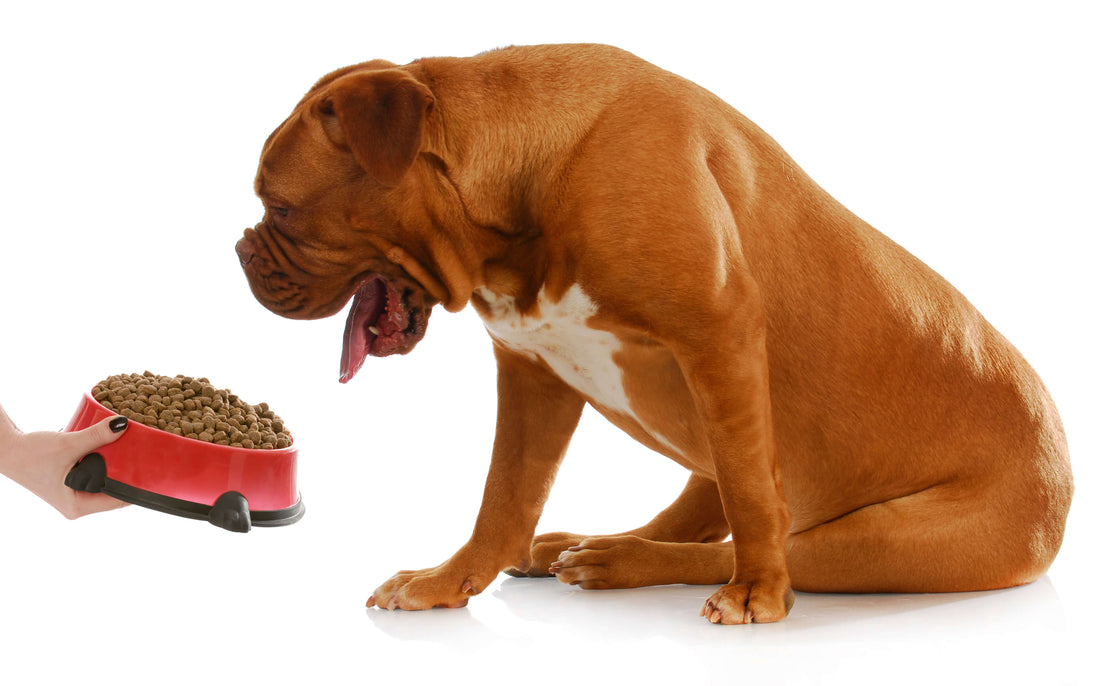
5 Natural Remedies for Digestive Problems in Dogs
From illness to anxiety to a bad batch of food, any number of things can bring on an upset stomach. It’s the same for your dog, too. If they’re feeling particularly stressed or got into people food they shouldn’t eat, they could be dealing with an upset stomach. And while they can’t tell you about it, the signs are hard to miss.
Depending on the nature of your dog’s gastrointestinal distress, symptoms might manifest in a number of ways. If they’ve got an irritable bowel, they might be begging to go outside frequently—and when they go, it’s diarrhea. Sometimes, it’s the opposite, and they can’t go at all! Blockages and backups can leave your constipated pup feeling lethargic or make them scoot around on the floor to alert you that something’s up. And, of course, there’s vomit: a clear sign of an upset stomach.
No matter what symptoms your dog displays, you can usually trace the problem to their stomach. While digestive issues can be chronic and troublesome for your pup, there are natural remedies to help them get better. Here are five natural remedies that can ease digestive distress in dogs.
1. Fasting
If your dog’s upset stomach seems to have come out of nowhere, there’s a good chance it’s caused by something they ate. One of the simplest ways to get it out of their system is to have them fast. Your dog may not like it, but withholding food for 12 to 24 hours can purge whatever’s making them ill from their stomach, acting like a reset button for their digestive troubles.
Make sure you consult with your vet first and be sure they get plenty of water during this time period. Some breeds should not fast, and dogs with chronic health problems may need special observation. See what your vet says before you take away their food for an extended period.
2. Bland diet
A bland diet is a safe way to make sure your dog is getting proper nutrition without any additives that might stimulate gastrointestinal distress. The most common bland diet is boiled chicken and rice, which contains plenty of protein and carbs.
If your dog is reeling from something like a grain allergy or has trouble processing certain foods, a bland diet will be much gentler on their stomach. This is also what your vet will likely recommend if your dog is dealing with a more severe condition like pancreatitis or an inflamed bowel.
3. Ice cubes
Dogs with heavy diarrhea or persistent vomiting are prone to dehydration. Unfortunately, they might also be unwilling to drink water for fear of inducing more vomiting or diarrhea. The best way to keep them hydrated is to give them a couple “water cookies.”
Your dog will love to crunch ice cubes and may even see them as a treat. As they ingest the ice cubes, they’re also hydrating themselves. Sneaky!
.jpg)
4. Canned pumpkin
If indigestion is the culprit, canned pumpkin is the answer. Pure pumpkin—without spices and additives—is very healthy for your dog’s gut and will help correct it thanks to slow nutrient absorption.
Not only that, but pumpkin helps get things moving again in the bowel, which means your backed-up dog should have no trouble the next time they squat in the yard to do their business. Administer about a half teaspoon for smaller dogs and a full tablespoon for larger dogs. But, again, check with your vet before giving your dog anything out of the norm.
5. Probiotics
Probiotics are extremely important for gut health. While humans can eat yogurt or drink kombucha to get a healthy dose of good bacteria, these products aren’t necessarily safe for dogs. Instead, consider a canine probiotic supplement.
Probiotics are natural and great for managing long-term digestive problems, and they could be one of the best tools in helping your poor pup avoid gastrointestinal flare-ups. Your vet can likely recommend a reputable product or brand name based on your dog’s breed and condition.
A healthy stomach is a happy one
While these methods are all-natural remedies for digestive issues, prevention is still the best prescription. You can help your dog avoid constipation, diarrhea and even serious conditions like pancreatitis by making sure they stay on a healthy diet of canine-friendly food. Avoid giving them table scraps and do what you can to limit their exposure to things that might irritate their stomach—like snacks they may find on the ground during a walk.
If your pup does come down with a case of gastrointestinal distress, give the above remedies a try. They’re safe and natural and they work, so your dog is bound to feel better in no time!


